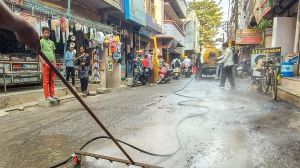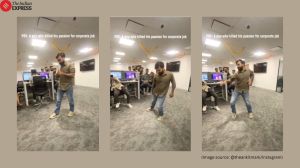Unsafe for justice
True, a precedent exists for the transfer by the Supreme Court of a riot-related case outside the state of Gujarat. The airlifting of the Bi...

True, a precedent exists for the transfer by the Supreme Court of a riot-related case outside the state of Gujarat. The airlifting of the Bilkis Yakub Rasool gangrape and mass murder case out of Ahmedabad to Mumbai comes nearly four months after the court directed a similar relocation of the justice process in the Best Bakery case. At that time, the move was rightly held up as a grim indictment of a criminal justice system that caves in to political pressures, especially when dealing with mass hate crimes. More than that, it held up a mirror to the criminal complicity and abdication of the Narendra Modi government in Gujarat. This was a government where, as the court said, 8216;8216;the modern day Neros were looking elsewhere8230; and were probably deliberating how the perpetrators of the crime could be protected8217;8217;. A political regime where the prosecution conspired with the defence counsel to protect those who are 8216;8216;worse than terrorists8217;8217;. In the Bilkis case, the tell tale signs of state-sponsored subversion of justice are even more stark. This case had to wait for the apex court8217;s intervention to be reopened last year after the Dahod police summarily closed it, citing absence of evidence. The investigation was shifted to the CBI which arrested six Gujarat policemen for allegedly colluding with the rioters and illegally disposing of the dead bodies.
Yet, the transfer of the second high profile case out of Gujarat must also disturb. The apex court8217;s action may ensure that like Zaheera Sheikh before her, Bilkis will also get a fair opportunity for justice and closure. But beyond these individual cases, is the system to meander on as unjustly as before? What hope does it hold out to the Zaheera Sheikhs and the Bilkis Rasools whose tragic stories the media and other civil society organisations may have failed to uncover and highlight? Are they to remain condemned to search for justice in a political regime that seems entirely incapable of delivering it to citizens of a certain community, and where even the CBI feels threatened and helpless to pursue its investigations?
It is time, perhaps, to begin asking the larger questions that are raised by the transfer of the two cases out of Gujarat. It is time to turn the searchlight on ways and means of making Gujarat a less hostile place for justice for victims of communal crimes. Solutions must be found 8212; legal-institutional and political 8212; for Gujarat8217;s malady. It must be seen as unbearable that India should be carved up into two kinds of territories. Where the rule of law and justice prevails and where it does not.
- 01
- 02
- 03
- 04
- 05































